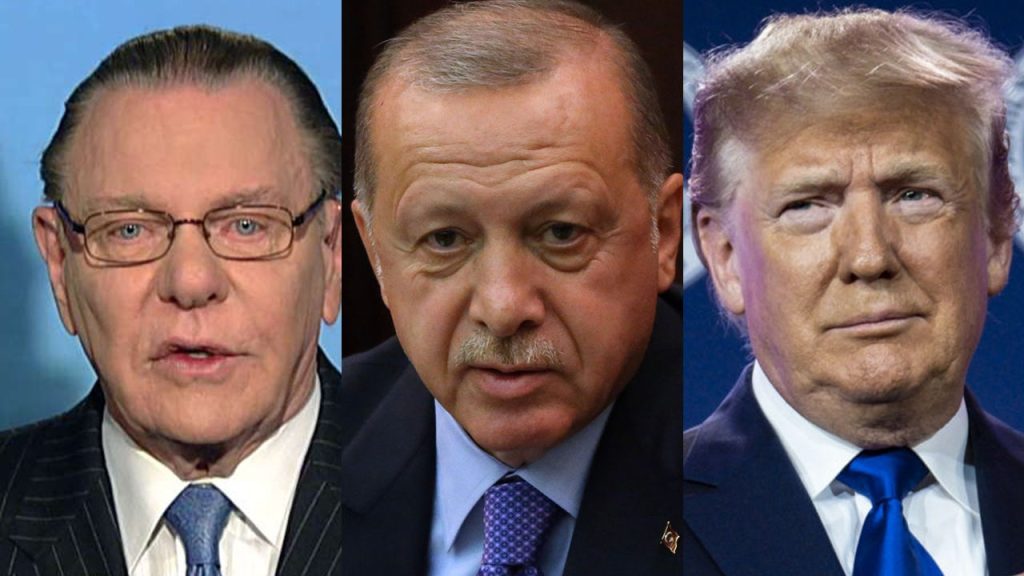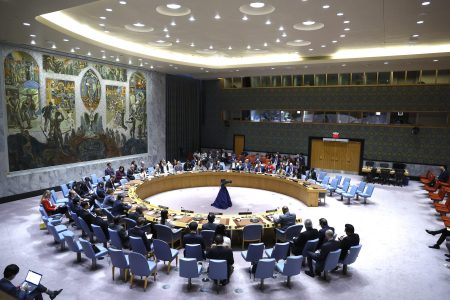The Looming Crisis in Northern Syria: Turkey’s Offensive Against the Kurds and the Potential for Renewed Conflict
The fall of Bashar al-Assad’s regime in Syria, while marking a significant shift in the regional power dynamics, has inadvertently opened the door to a new and potentially devastating conflict. Turkey, under the leadership of Recep Tayyip Erdoğan, has seized the opportunity to target the Syrian Kurds, a key U.S. ally instrumental in the fight against ISIS. This aggressive move by Turkey threatens to destabilize the region further, potentially leading to ethnic cleansing and the resurgence of ISIS.
The Syrian Kurds, having played a crucial role in defeating ISIS, are now facing a formidable threat from Turkey, which views them as an extension of the Kurdistan Workers’ Party (PKK), a designated terrorist organization. Turkey’s military operations against the Kurds, including airstrikes and ground offensives, are raising alarm bells among international observers. Experts warn that Turkey’s unchecked aggression could result in widespread displacement and violence against the Kurdish population. The Kurds, primarily focused on maintaining stability and preventing the resurgence of ISIS, find themselves caught in the crosshairs of a regional power struggle.
The United States, having benefited greatly from the Kurds’ alliance in the fight against ISIS, is now faced with a difficult dilemma. The Biden administration’s apparent reluctance to intervene leaves the Syrian Kurds vulnerable to Turkish aggression. However, former President Trump, who has a history of engaging directly with Erdoğan on this issue, could potentially play a significant role in de-escalating the situation. His past success in persuading Erdoğan to halt similar offensives highlights the potential impact of direct communication and pressure.
The evolving situation in Syria has also drawn the attention of other international actors. The Dutch Parliament has urged its government to advocate for an end to Turkey’s attacks on the Kurds. Senator Lindsey Graham has reiterated his willingness to draft bipartisan sanctions against Turkey if the offensive continues. These international efforts underscore the growing concern over Turkey’s actions and the potential for a wider conflict. The Kurdish-led Autonomous Administration of North and East Syria (AANES) has issued a desperate plea to the international community, calling for unity and support in protecting the Kurdish population from Turkish aggression.
The complex web of alliances and rivalries further complicates the situation. The leader of Hayʼat Tahrir al-Sham (HTS), a U.S.-designated terrorist group that played a role in Assad’s downfall, has surprisingly expressed support for the Kurds. This unexpected statement highlights the intricate and often contradictory nature of the relationships between various actors in the Syrian conflict. Meanwhile, Turkey’s Foreign Minister Hakan Fidan continues to justify Turkey’s actions by emphasizing the threat posed by the PKK and its alleged links to the Syrian Kurds.
The United States faces a complex foreign policy challenge. Balancing its strategic relationship with Turkey against its moral obligation to protect the Kurds requires a delicate approach. While the State Department has refrained from publicly commenting on potential sanctions against Turkey, the situation demands a clear and decisive response. Failure to act could have dire consequences, potentially leading to a humanitarian crisis, the resurgence of ISIS, and further destabilization of the region. The incoming U.S. administration must carefully weigh its options and consider the long-term implications of its actions in this volatile region. The future of the Syrian Kurds, and indeed the stability of the region, hangs in the balance.










